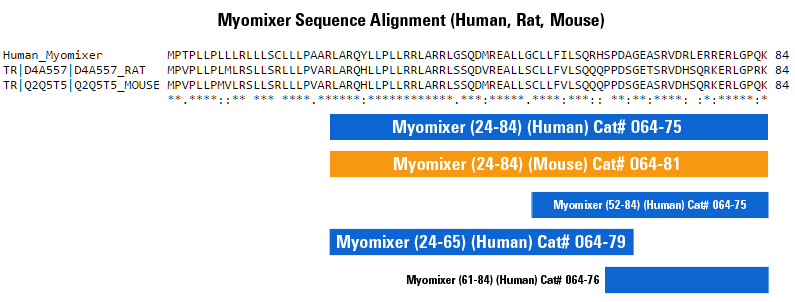The majority of studies on possible roles for collagen hydrolysates in human health have focused on their effects on bone and skin. Hydroxyprolyl-glycine (Hyp-Gly) was recently identified as a novel collagen hydrolysate-derived dipeptide in human blood. However, any possible health benefits of Hyp-Gly remain unclear. Here, we report the effects of Hyp-Gly on differentiation and hypertrophy of murine skeletal muscle C2C12 cells. Hyp-Gly increased the fusion index, the myotube size, and the expression of the myotube-specific myosin heavy chain (MyHC) and tropomyosin structural proteins. Hyp-Gly increased the phosphorylation of Akt, mTOR, and p70S6K in myoblasts, whereas the phosphatidylinositol 3-kinase (PI3K) inhibitor LY294002 inhibited their phosphorylation by Hyp-Gly. LY294002 and the mammalian target of rapamycin (mTOR) inhibitor rapamycin repressed the enhancing effects of Hyp-Gly on MyHC and tropomyosin expression. The peptide/histidine transporter 1 (PHT1) was highly expressed in both myoblasts and myotubes, and co-administration of histidine inhibited Hyp-Gly-induced phosphorylation of p70S6K in myoblasts and myotubes. These results indicate that Hyp-Gly can induce myogenic differentiation and myotube hypertrophy and suggest that Hyp-Gly promotes myogenic differentiation by activating the PI3K/Akt/mTOR signaling pathway, perhaps depending on PHT1 for entry into cells.

Social Network Confirmation